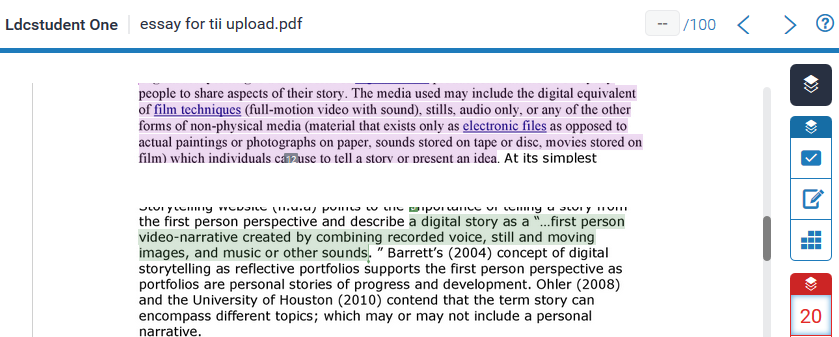I attended Turnitin’s Academic Integrity Conference in Newcastle on 19th October 2017. The afternoon sessions focused on academic integrity and the new front in plagiarism – contract cheating. This was a very timely discussion with the release of the QAA’s report on Contracting to Cheat in Higher Education
So while Turnitin may help in identify breaches in academic integrity with cut and paste plagiarism, “[c]ontract cheating happens when a third party completes work for a student who then submits it to an education provider as their own, where such input is not permitted.” (QAA, p1) This type of academic misconduct is much harder to detect as it is original work, but has not been completed by the student.
Simon Bullock, QAA Standards and Frameworks Officer outlined the background to their report and a summary of their recommendations to support Higher Education Institutions in taking action to address contract cheating following extensive media coverage of Essay Mills.
It was fascinating to hear the findings from research in Australia by Associate Professor Cath Ellis (UNSW, Sydney) and her research team into the outsourcing of learning where it intersects with contracting. This involved a survey of over 14,000 students.
Professor Phil Newton (Swansea University) highlighted how it was difficult to get objective data on the scale of this issue as the only way to find the information was to ask students. From his research, he estimated the figure to be somewhere between 3-10% of students who will admit to outsourcing their work in some way.
Of particular interest from the Australian study was the finding that students outsource to their peers, friends and family more frequently that contracting with a commercial Essay Mill.
The findings also highlighted that cheating goes up when students are dissatisfied with the teaching and learning environment and when students perceive that there are opportunities to cheat.
Contents
So how do we tackle contract cheating?
Assessment design
Phil Newton’s research suggests using assessments that focus on what students can do and which can be assessed by narrated video assignments, learning on placement, portfolio assessment or in-class coursework. The QAA (2017) suggests using authentic assessment, a mix of assessment methods and requiring students to submit assessments at regular intervals so that drafts can be checked.
The QAA (2017) also advises not to rely on shorter deadlines to decrease contract cheating.
Educating staff and students about academic integrity
Both presenters highlighted the importance of educating students and lecturers about academic integrity. Cath Ellis spoke about the importance of having conversations with students about contract cheating and highlighting that it is not a victimless crime and also that it is not as prevalent as students think that it is.
Phil Newton pointed to his research where he found that textbooks around teaching and learning in Higher Education did not reference the term academic integrity or contract cheating, and academic developers need to ensure that this subject is included in Academic Practice Programmes for lecturers.
We’d be really interested to hear how you currently discuss academic integrity and contract cheating with students.
References
QAA (2017). Contracting to Cheat in Higher Education How to Address Contract Cheating, the Use of Third-Party Services and Essay Mills [online] Available from:http://www.qaa.ac.uk/en/Publications/Documents/Contracting-to-cheat-in-higher-education.pdf (Accessed 09.02.18)

